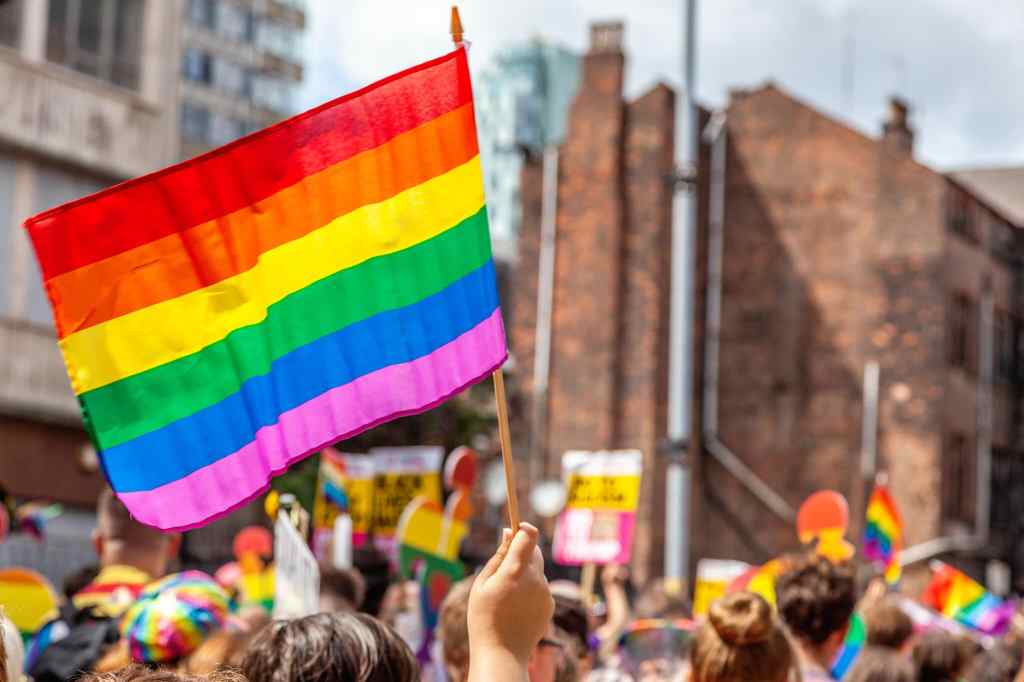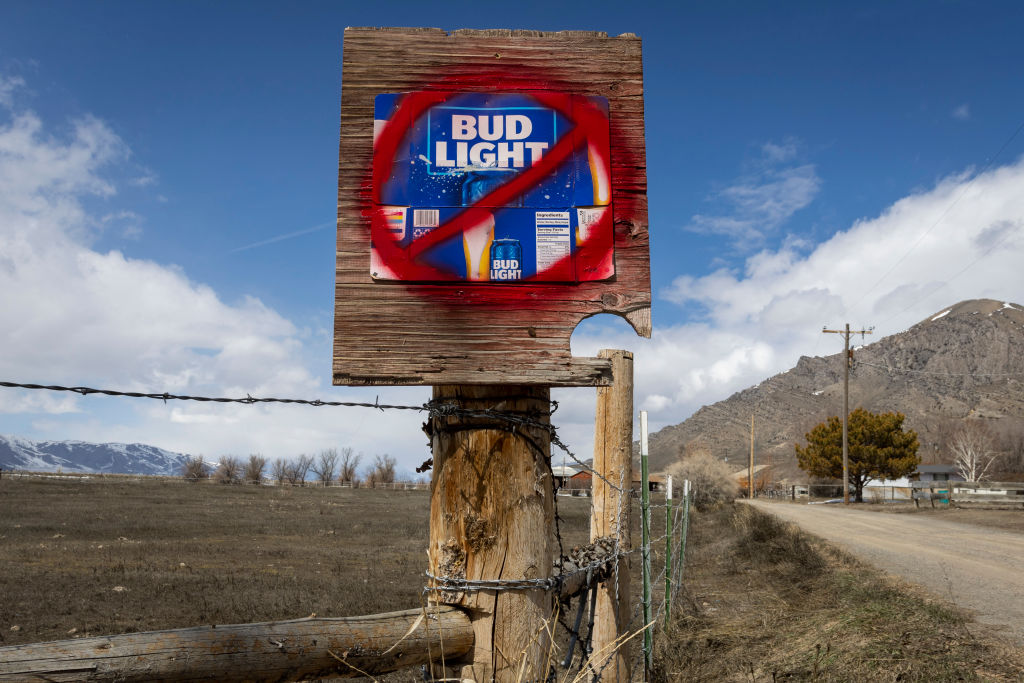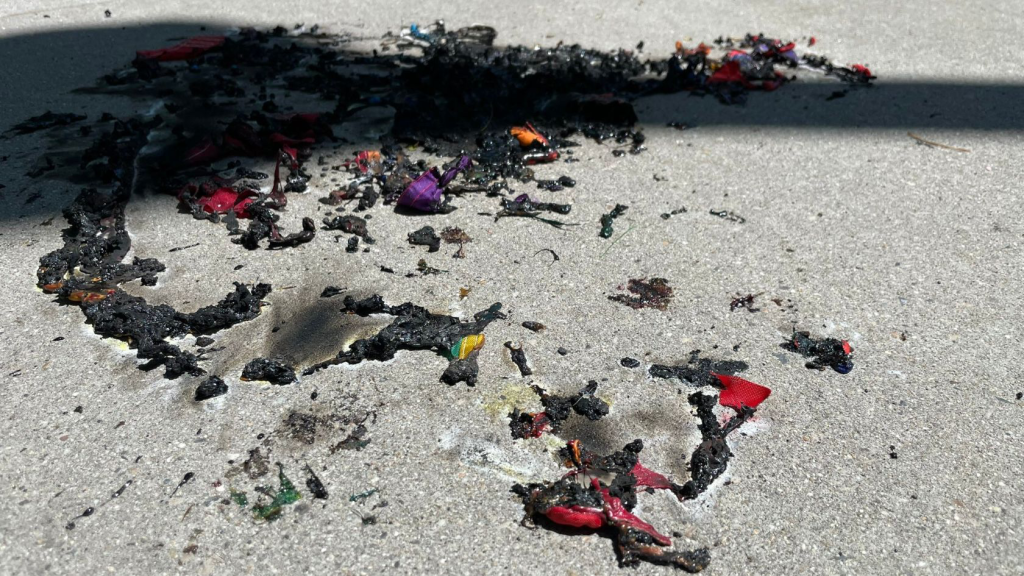Queer Irish people and allies form human chain to protect library from anti-LGBTQ book protest
A crowd of counter-protestors formed a human shield around a city centre library in Ireland, enabling it to remain open despite a right-wing rally taking place on the street outside.
Cork City Library has been the focus of right-wing anger ire for months, with people harassing library staff in an attempt to get LGBTQ+ books removed from its shelves.
On Saturday (2 September), about 300 people turned out in support of the library and its staff, and in opposition to the Ireland Says No rally, which was organised by conservative groups.
The city council was previously forced to shut the library during another demonstration, out of fear for the safety of staff.
During the course of the counter demonstration, groups of people, including from Cork Says No To Racism and Cork Rebels For Peace, waved Pride flags, held signs and sang songs.
Speaking to CorkBeo, Sinn Féin councillor Mick Nugent said: “For me, it’s primarily in support of library workers in terms of what they’ve had to put up with over the past number of months. The library is open today, which is good, business as usual.”
“It’s about equality, it’s about liberty, it’s about fraternity and it’s about diversity. We’re supporting all communities that decided to make Cork their home.”
‘It’s important to take a stand’
Two women, who said they were members of the Irish Writers Union, told CorkBeo they were part of the counter-protest because the issue of library attacks is affecting the rest of the country.
“We travelled down because this is not just affecting Cork, there have been attacks like this on libraries across Ireland and it’s important to take a stand, support the workers who are being targeted and support the right of libraries to have the right to choose the books they want to have,” they said.
One person was arrested, the Garda Síochána (the Irish police force) confirmed, following the demonstrations.
“Gardaí in Anglesea Street attended the scene of a protest at a premises in Cork city. During the course of the protest, one male [in his] late twenties was arrested under the Public Order Act 1994 and was dealt with accordingly,” a police spokesperson told The Echo.
“No further incidents arose and the group dispersed peacefully.”



